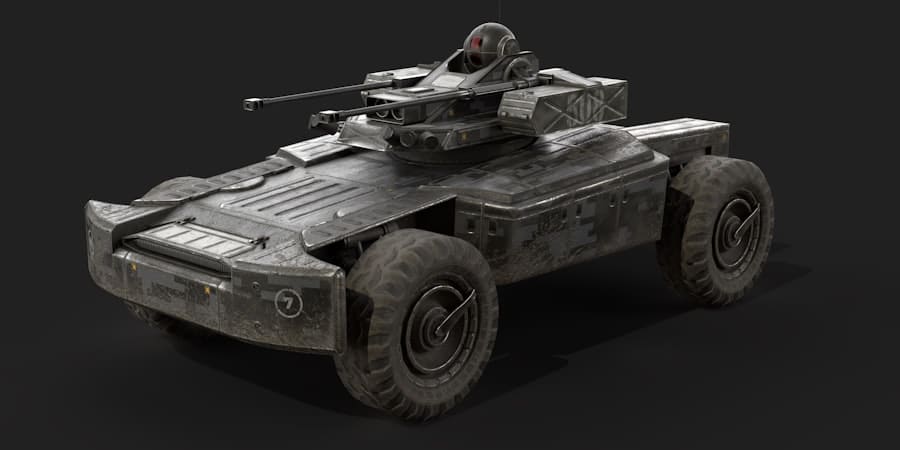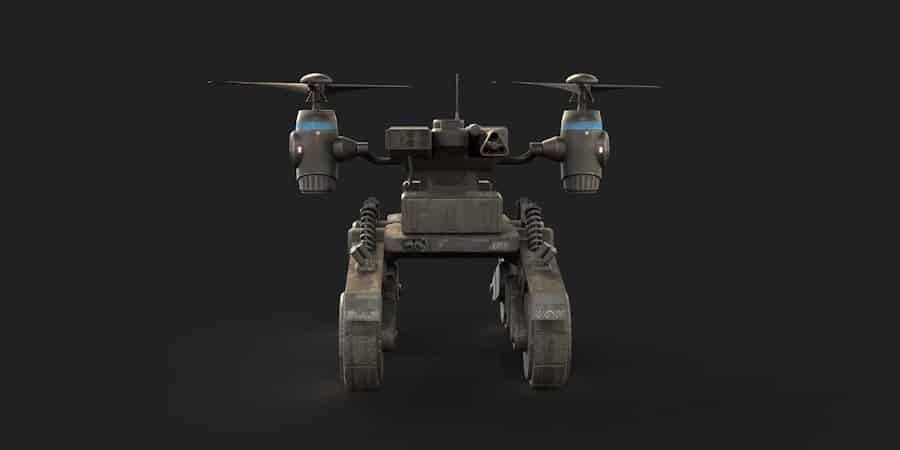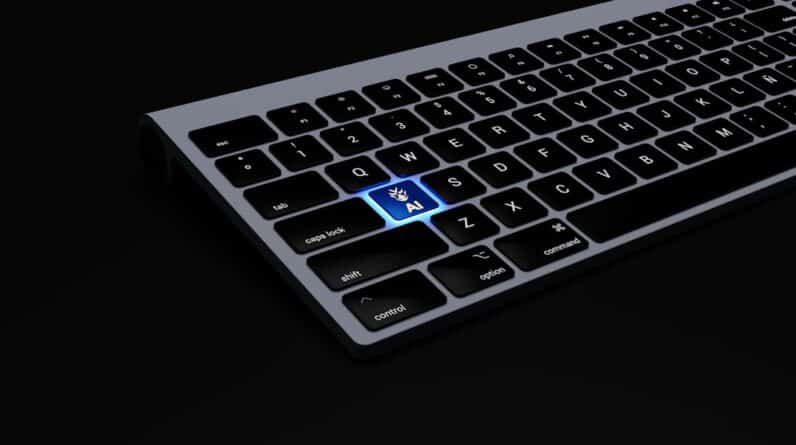As you delve into the realm of space exploration, it becomes increasingly clear that artificial intelligence (AI) plays a pivotal role in shaping the future of how humanity interacts with the cosmos. The vastness of space presents challenges that are often beyond human capabilities, and this is where AI steps in as a powerful ally. By processing vast amounts of data, making real-time decisions, and learning from experiences, AI enhances our ability to explore distant planets, moons, and even asteroids.
It acts as a bridge between human ingenuity and the complexities of the universe, allowing for missions that were once deemed impossible. Moreover, AI’s role extends beyond mere assistance; it is becoming an integral part of mission planning and execution. With its ability to analyze data at unprecedented speeds, AI can identify patterns and anomalies that might elude human researchers.
This capability not only accelerates the pace of discovery but also enhances the safety and efficiency of missions. As you consider the future of space exploration, envision a landscape where AI systems work alongside astronauts and scientists, making informed decisions that could lead to groundbreaking discoveries about our universe.
Key Takeaways
- AI plays a crucial role in space exploration by assisting in decision-making, data analysis, and autonomous operation of spacecraft.
- AI applications in space missions include navigation, communication, and hazard detection, enhancing the efficiency and safety of space exploration.
- Advancements in AI technology, such as machine learning and neural networks, have improved the capabilities of space exploration by enabling more complex tasks to be performed autonomously.
- AI enables autonomous spacecraft to make real-time decisions, adapt to changing conditions, and carry out complex tasks without human intervention, reducing the need for constant communication with Earth.
- AI is instrumental in robotic exploration of planets, enabling rovers and landers to navigate, collect data, and make scientific discoveries in remote and challenging environments.
AI Applications in Space Missions
In the context of space missions, AI applications are diverse and multifaceted. One of the most significant uses of AI is in navigation and guidance systems for spacecraft. These systems rely on AI algorithms to process data from various sensors, enabling spacecraft to adjust their trajectories in real-time.
This adaptability is crucial when navigating through the unpredictable environment of space, where conditions can change rapidly. As you think about the complexities involved in reaching distant destinations like Mars or beyond, it becomes evident that AI is not just a tool but a necessity for successful navigation. Additionally, AI is instrumental in managing spacecraft systems and ensuring their optimal performance.
For instance, during long-duration missions, such as those to the International Space Station (ISS), AI can monitor life support systems, power management, and communication links. By predicting potential failures and suggesting preventive measures, AI enhances mission reliability and safety. You can imagine how this proactive approach not only saves time but also resources, allowing astronauts to focus on their scientific objectives rather than troubleshooting technical issues.
Advancements in AI Technology for Space Exploration

The advancements in AI technology are revolutionizing space exploration in ways that were once thought to be science fiction. Machine learning algorithms have become increasingly sophisticated, enabling systems to learn from vast datasets generated by previous missions. This capability allows AI to improve its performance over time, adapting to new challenges and environments.
As you explore this evolution, consider how these advancements are paving the way for more ambitious missions that require a higher level of autonomy and decision-making. Furthermore, the integration of AI with other emerging technologies, such as robotics and advanced sensors, is creating a new frontier in space exploration. For example, AI-driven robotic systems can analyze geological samples on Mars or autonomously navigate through complex terrains on other celestial bodies.
This synergy between AI and robotics not only enhances exploration capabilities but also reduces the risks associated with human involvement in hazardous environments. As you reflect on these technological strides, it becomes clear that the future of space exploration is not just about reaching new frontiers but doing so with unprecedented efficiency and safety.
AI and Autonomous Spacecraft
The concept of autonomous spacecraft is becoming a reality thanks to advancements in AI technology. These spacecraft are designed to operate independently without constant human intervention, making them ideal for long-duration missions where communication delays with Earth can hinder decision-making. Imagine a spacecraft exploring the outer reaches of our solar system, equipped with AI that allows it to analyze its surroundings and make critical decisions on its own.
This level of autonomy not only enhances mission efficiency but also opens up new possibilities for exploration. Autonomous spacecraft can perform tasks such as landing on distant moons or conducting scientific experiments without waiting for instructions from mission control. This capability is particularly valuable in environments where communication delays can span several minutes or even hours.
As you consider the implications of this autonomy, think about how it allows for more dynamic exploration strategies, enabling spacecraft to respond to unexpected discoveries or challenges in real-time. The future of space exploration is increasingly leaning towards these self-sufficient systems that can adapt and thrive in the harsh conditions of space.
AI and Robotic Exploration of Planets
Robotic exploration has long been a cornerstone of our efforts to understand other planets, and AI is enhancing this field significantly. Robots equipped with AI can analyze data from their surroundings, make decisions based on that data, and even communicate findings back to Earth without needing constant guidance from human operators. This capability is particularly important for missions to planets like Mars or Venus, where conditions are extreme and human presence is not feasible.
As you consider the role of AI in robotic exploration, think about how these machines can conduct detailed geological surveys or search for signs of past life on other planets. Equipped with advanced sensors and imaging technology, AI-driven robots can identify areas of interest for further study, optimizing the scientific return on each mission. The ability to process information quickly allows these robots to adapt their strategies based on real-time observations, making them invaluable assets in our quest to uncover the mysteries of our neighboring worlds.
AI and Data Analysis in Space Research

The sheer volume of data generated by space missions is staggering, and this is where AI truly shines. With its ability to analyze large datasets quickly and efficiently, AI transforms raw data into meaningful insights that drive scientific discovery. For instance, telescopes like the Hubble Space Telescope generate terabytes of data daily; without AI algorithms to sift through this information, identifying significant patterns or anomalies would be nearly impossible.
Moreover, AI can assist researchers in developing predictive models based on historical data from previous missions. By recognizing trends and correlations within vast datasets, AI can help scientists formulate hypotheses about celestial phenomena or even predict future events. As you contemplate the implications of this data analysis capability, consider how it accelerates our understanding of the universe and informs future exploration strategies.
The integration of AI into data analysis not only enhances research efficiency but also opens new avenues for discovery that were previously unimaginable.
AI and the Search for Extraterrestrial Life
The search for extraterrestrial life is one of humanity’s most profound quests, and AI is playing an increasingly vital role in this endeavor. By analyzing signals from deep space or examining data from planetary missions, AI can help identify potential biosignatures—indicators that life may exist beyond Earth. For example, machine learning algorithms can sift through radio signals from distant stars to detect patterns that might suggest intelligent communication.
Additionally, AI can assist in analyzing atmospheric compositions of exoplanets to identify conditions conducive to life. By processing data from telescopes and space probes, AI can help scientists pinpoint planets that may harbor life or have environments similar to Earth’s. As you reflect on these possibilities, consider how AI not only enhances our search for life but also expands our understanding of what constitutes habitable conditions across the universe.
Ethical Considerations of AI in Space Exploration
As you explore the exciting possibilities that AI brings to space exploration, it is essential to consider the ethical implications associated with its use. The deployment of autonomous systems raises questions about accountability—who is responsible if an AI-driven spacecraft makes a mistake? Furthermore, as we venture further into space with intelligent machines, we must contemplate the potential consequences of their actions on extraterrestrial environments.
Moreover, there are concerns about data privacy and security when it comes to collecting information from other celestial bodies or even potential extraterrestrial signals. As you ponder these ethical considerations, think about how they will shape policies and regulations governing the use of AI in space exploration. Balancing innovation with responsibility will be crucial as we navigate this uncharted territory, ensuring that our quest for knowledge does not come at the expense of ethical standards or environmental stewardship.
In conclusion, as you reflect on the multifaceted role of AI in space exploration—from enhancing mission efficiency to aiding in the search for extraterrestrial life—it becomes evident that this technology is not just a tool but a transformative force shaping our understanding of the universe. The journey ahead promises to be filled with challenges and discoveries that will redefine humanity’s place among the stars.
In a related article discussing the impact of artificial intelligence on various industries, “AI in Content Creation: Automated Writing and Design Tools” explores how AI technology is revolutionizing the way content is generated and designed. This article delves into the advancements in automated writing and design tools that are streamlining the creative process for businesses and individuals alike. To learn more about the innovative applications of AI in content creation, check out the article here.
FAQs
What is AI in space exploration?
AI, or artificial intelligence, in space exploration refers to the use of advanced computer systems and algorithms to assist in various aspects of space missions, including data analysis, decision-making, and autonomous operation of spacecraft and rovers.
How is AI being used in space exploration?
AI is being used in space exploration for a variety of purposes, including autonomous navigation of spacecraft, analysis of large volumes of data collected from space missions, and the development of intelligent systems for controlling and operating robotic explorers on other planets.
What are the benefits of using AI in space exploration?
The use of AI in space exploration can lead to more efficient and cost-effective missions, as well as the ability to process and analyze large amounts of data in real time. AI can also enable autonomous decision-making and problem-solving, reducing the need for constant human intervention during space missions.
What are some examples of AI technologies being used in space exploration?
Examples of AI technologies being used in space exploration include machine learning algorithms for analyzing data from space telescopes, autonomous navigation systems for spacecraft and rovers, and intelligent software for controlling and operating robotic explorers on other planets.
What are the challenges of using AI in space exploration?
Challenges of using AI in space exploration include the need to develop robust and reliable systems that can operate in the harsh conditions of space, as well as the potential for AI systems to make errors or malfunction without human oversight. Additionally, there are ethical and legal considerations surrounding the use of AI in space exploration.






